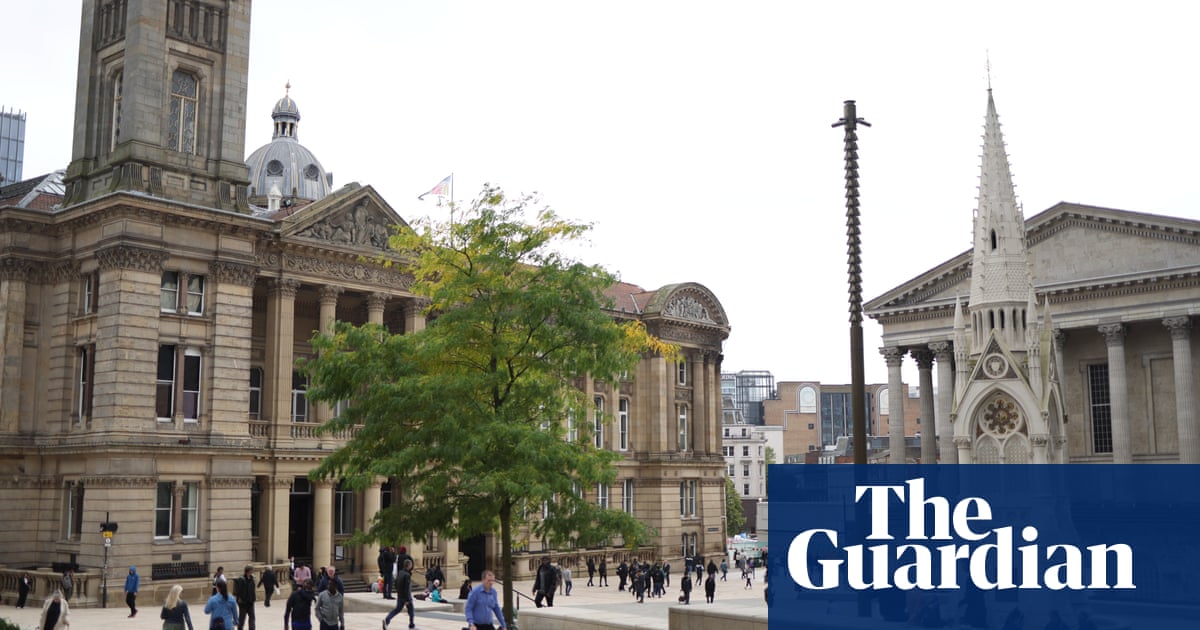
The scale of the financial black hole facing local public services caused by coronavirus is revealed in official data seen by the Guardian, indicating England’s 343 local authorities face a potential £5bn funding shortfall over the next year, with several understood to be on the brink of insolvency.
An analysis of the financial returns compiled by 44 of England’s largest councils shows that by the end of this financial year they will be in the red by £2.2bn.
If spending and losses at all councils continue to mount at predicted rates, the aggregated total for all English local authorities would be more than £8bn for the year, or £5bn after the first wave of government bailouts. Local government spending in England is about £50bn a year.
Councils have spent hundreds of millions more than expected during the lockdown on providing social care, personal protective equipment for staff, housing rough sleepers, and supplying emergency food packages, while losing even larger amounts in lost revenues from council tax, parking charges and leisure fees.
Although ministers have provided £3.2bn in two crisis bailouts in recent weeks, councils are warning much of this has already been spent – and some are understood to be drawing up fresh provisional cuts to balance their books, which would lead to services being drastically reduced, from waste disposal to arts, libraries and leisure.
The unprecedented financial pressure has already forced a handful of councils to invoke controversial emergency powers under the Coronavirus Act, which allow them to suspend legal duties to provide aspects of social care – cost-saving measures that charities and human rights groups have warned will put older and disabled people at risk.
The study of returns by councils in the Special Interest Group of Municipal Authorities (Sigoma), which includes authorities in Manchester, Leeds, Newcastle, Leicester and Nottingham, suggests this group of 47 authorities alone anticipate extra Covid-19 spending pressures totalling £720m over the year.
This is dwarfed by the potential drying up of vital municipal income streams, estimated at £1.4bn. This includes a loss of more than £400m in business rates, a £288m loss in council tax caused by residents who have lost their jobs cancelling direct debits payments, and a £341m loss in fees and charges.
Extrapolated across the entire English local government landscape, this would leave councils with a funding shortfall of about £5bn after the recent cash bailouts.
Sir Stephen Houghton, the chair of Sigoma and leader of Barnsley metropolitan borough council, said that if the government does not step in, many councils will consider issuing bankruptcy notifications, called section 114 notices.
“Even for those councils that are not at that cliff edge, the ability to deliver key services effectively – children services, adult services and waste management, for example – will be in question.
Houghton said: “Services may be running now but we will see the effect will come through in six to 12 months’ time. You get to a point where the frequency of waste collection is cut and the time taken to assess vulnerable peoples needs takes longer and so on.
“The government needs to have a constructive dialogue with local government about the scale of the problem and negotiate both a package of measures including extra funding to keep local government in a stable position.”
Although the Sigoma councils are located predominantly in the urban north and Midlands, a separate Local Government Chronicle analysis shows similar problems are faced by smaller district councils, many in affluent Conservative heartlands in the south of England, which are massively reliant on fees and charges for income.
Last week, Windsor and Maidenhead district council in Berkshire, which is in former prime minister Theresa May’s constituency, formally informed ministers it was poised to announce bankruptcy because while coronavirus pressures had created a predicted £14m shortfall it had just £6m in reserves
Councils affected range from Greater Manchester Combined Authority, which disclosed on Friday that coronavirus will leave the city’s 10 borough councils £541 million out of pocket, to authorities in Oxfordshire, which said they stood to lose £100m as a result of coronavirus costs.
Newcastle-under-Lyme borough council in Staffordshire has said it had already used all its £65,000 bailout share from the government to house 21 homeless people. Stephen Sweeney, the deputy council leader, said: “It’s gone now. We have £1.5m in reserves, you don’t need to do the maths to see how long before we get problems.”
Responding to the figures compiled by Sigoma, a government spokesperson said: “The secretary of state has announced £3.2bn of funding for councils to support their response to the pandemic. This new funding will support them through immediate pressures faced by councils to respond to coronavirus and protect vital services.”












